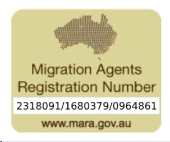Migrate to Germany
Sign up for a free expert consultation
Don't know what to do?
Get Free Counseling
Eligibility criteria to immigrate Germany
Eligibility to immigrate to Germany depends on the individual's circumstances and the purpose of their stay. Some general eligibility requirements for different types of immigrations. It's important to note that German immigration laws are subject to change, It's always good to seek for professional advice before starting the process.
Educational Profile
Professional Profile
IELTS score or German
German language skills if migrating to Germany
References & legal documentation
Germany employment documentation
Why Migrate to Germany?
- Germany hosts nearly 110000 UK citizens with/without PR visa
- The German economy is 4th largest globally and most robust in Europe
- Germany is 13% more productive than the UK
- 1.74 million job vacancies across Germany
- The EU Blue Card helps you earn at least EUR 58,400
How to Migrate to Germany?
- Post Brexit, UK citizens without residency permits can only live in Germany for 90 days or 3 months within 6 months or 180 days.
- As a UK citizen, suppose you want to relocate to Germany for work purposes with a Permanently Residency (PR) visa. In that case, you must apply for it directly from Germany or through the German consulate in the UK or their nation.
- If you want to stay longer in Germany, long-term visa (D-type) can help you get PR. Demand for UK entry visa to Germany has increased since Brexit.
- It would help if you had pre-approval from the Employment Agency in Germany before applying for an entry visa at the German Embassy.
- German governments’ rules state that accepting the UK or any foreign nationals for employment depends’ on Germany’s economic requirements.
- You will need both vocational qualifications as well as a detailed employment offer.
- As a UK citizen, you can also use the Skilled Immigration Act that came into existence in March 2020.
- The law simplifies the immigration of specialists from the UK to Germany in great demand. These include engineers, doctors, mathematicians, scientists, IT professionals, etc.
- Register at the local registration office in 14 days.
- These registration offices in Germany are titled differently, depending on the area where you live such as Kreisverwaltungsreferat (KVR), Burgeramt, Burgerburo, or Einwohnermeldeamt.
- Besides trying to get a Temporary Residence Permit, also called Aufenthaltserlaubnis, you can also try to get an EU Blue Card if you are a highly qualified professional or even a PR permit holder.
- If you immigrate as a self-employed entrepreneur in Germany, you are eligible for a permanent settlement permit after 3 years.
- You need to prove that the income generated from your business is sufficient to maintain your and your family members.
- To boost your residency case, get a local health insurance policy and bank account.
- You can apply for PR in Germany after you have lived for 5 years in Germany in an unbroken stretch.
- Before Brexit, UK citizens could easily travel to Germany without any restrictions. After Brexit, UK citizens can only enter Germany sans visa for 3 months within 6 months. It applies to UK citizens visiting all Schengen Area countries.
Benefits of Immigrate to Germany
- Easy access to other European countries.
- Good work-life balance.
- Excellent public transport connectivity.
- Mingle easily with UK expats living in leading German cities.
- You can get unemployment benefits.
- Health insurance cash benefits in case of illness.
- Disability and old-age pension benefits.
- Lower cost of living as compared to the UK.
- High-paying jobs for skilled professionals.
- Enjoy UK benefits and pensions even as you live in Germany.
Eligibility Criteria to Immigrate to Germany
- Your UK passport is valid for at least 3 more months beyond the date you intend to leave Germany.
- You must have valid travel documents and additional supporting documentation.
- A cover letter explaining the purpose of immigration to Germany.
- You need to have enough financial resources to sustain yourself and your family while staying in Germany for an extended period.
- You must not have any alerts issued against you in the Schengen Information System.
- You are not a threat to any EU member countries’ health policy, internal security, public policy, or international relations.
- Visa application form filled out completely and duly signed with fee payment receipt as proof along with 1 biometric photo.
- You have German medical insurance and a bank account.
- You are proficient up to B1 level in German.
- You don’t have a past criminal record.
- If immigrating to Germany for work, show a letter from your German employer detailing your job offer and description as proof.
- If you are immigrating to join your spouse/civil partner in Germany, you must provide a marriage/civil partnership certificate.
- Proof of residence in the UK supported by documents like utility bills, tax returns, and bank statements of the last 6 months.
- Medical certificate stating good health to live and work in Germany.
What Are the Key Requirements to Migrate to Germany?
- You need to apply 180 days in advance.
- Show up in person at the German Embassy/Consulate in London/ Edinburgh.
- You live in Germany for 5 years (only 3 years if you are married to a German citizen) to get PR.
- If you are a German university graduate who lived and worked for 2 years in Germany, you get PR.
- An understanding of local legal, social order, and overall society in Germany.
- 5 years of minimum experience in your chosen field of study.
- You need to be under the age of 35 years.
- You must have a detailed business plan that outlines your business idea if you are immigrating to set up a business.
- You must apply for a job seeker visa if you don’t have a job before migrating to Germany.
- If you are over 45, you must give evidence for pension provision.
What are the Steps to Apply?
- Prepare checklist of documents needed.
- Fill out the online application form.
- Submit the required documents with appropriate information.
- Once your interview is scheduled, attend it in person at least 3 months before you travel to Germany.
- Submit all relevant supportive documents, including biometric information.
- Make fee payment.
- Once approved, collect approval in person and fly off to Germany.
Germany Visa Processing Time
- According to the Schengen Visa Code, the processing time for a Schengen visa from the UK to Germany differs.
- UK to Germany visa application takes a minimum of 5 working days.
| Visa Type | Time |
| Standard long stay | 30 days |
| Rush / Super Rush | 30 days |
| Standard short stay | 15 days |
Germany Visa Processing Fees
| Schengen Visa | Euro |
| Adult (short stay) | 80 |
| Adult (long stay) | 75 |
| Children between 6-12 years of age | 40 |
| Children below 6 years of age | Free |
- Family members of an EU national with requisite documents are exempt.
- Also, students, including graduates and study graduates traveling from the UK to Germany with staff, are exempt.
How Y-Axis Can Help You
- Help identify the best strategy to help you get a German PR.
- Counsel you on ways to present all relevant documents to be submitted.
- If looking for a job, help you grab the best job on offer as per your qualifications.
- Advise you on how to do the step-by-step filling of documents.
- Help you fill out all relevant application forms.
- Review your documents before they are submitted for approval.
- Help you learn the German language with a coaching service.
Get yourself evaluated instantly for free with the Y-Axis immigration point’s calculator here.
Our Accreditations |
|||
 |
 |
 |
 |
Looking For Inspiration
Explore what Global Citizens have to say about Y-Axis in shaping their future
Frequently Asked Questions
